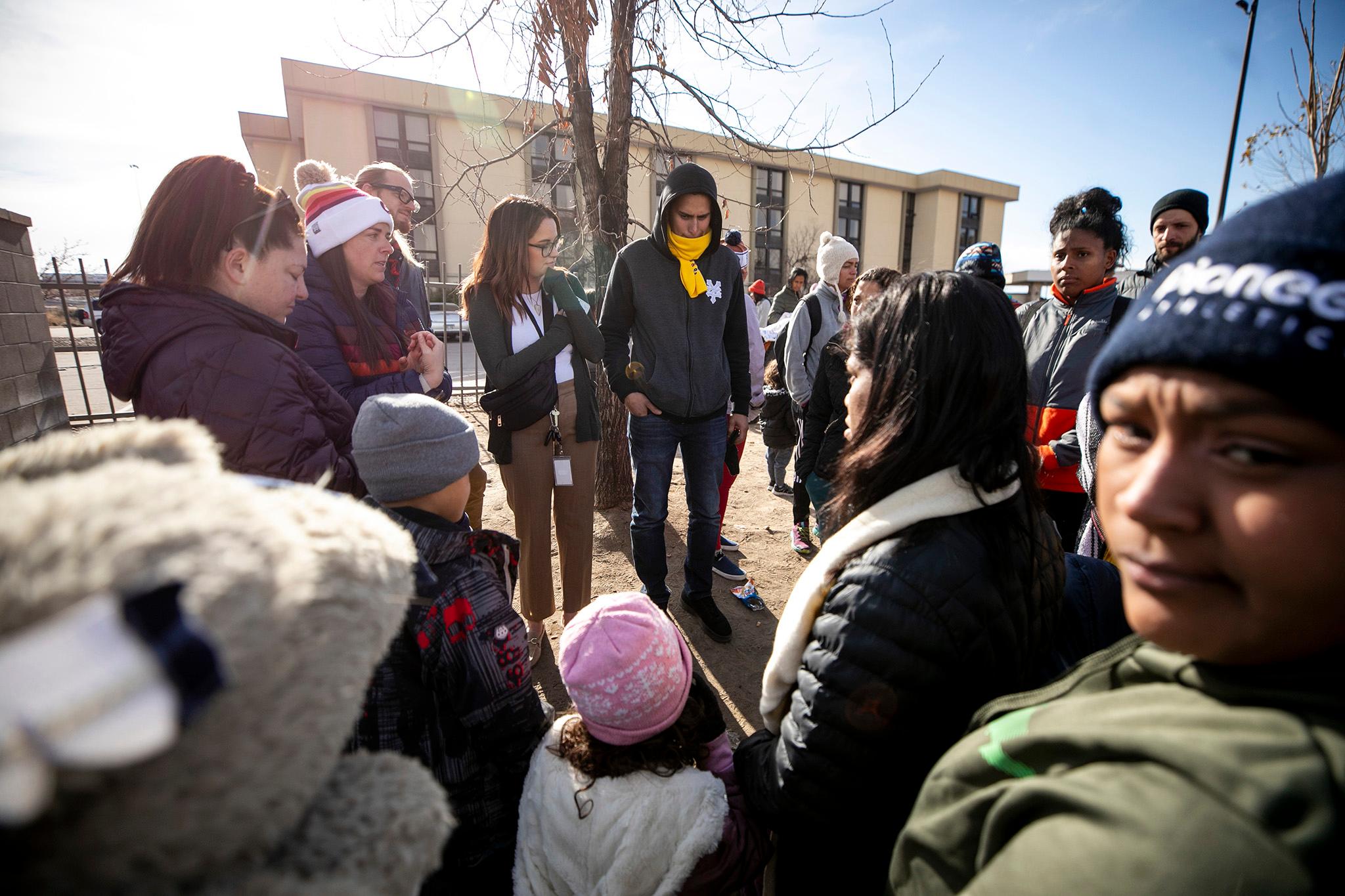Denver plans to close four new immigrant shelters over the next month, Mayor Mike Johnston announced Wednesday morning.
Johnston said that closing the shelters could allow the city to save up to $60 million from its originally predicted $180 million figure in new immigrant response from the 2024 budget.
New arrivals to the city have been dropping in the last few weeks.
The city could still adjust to receiving more new immigrants again, but Johnston added that the city will focus on case management and helping new arrivals find housing and work to try to avoid needing to reactivate temporary hotel shelters.
"Our belief is even without any federal support on this issue, we believe our problems are solvable, and we are the ones to solve them and that's the spirit the city has stepped up with here," Johnston said, referring to a failed bipartisan bill at Congress that would have provided $1.4 billion in aid to local governments.
Closing new immigrant shelters comes as arrivals have been falling.
The number of new immigrants staying in city shelters peaked at about 5,200 around mid-January, but the number has been steadily falling.
Currently, there are about 2,400 people being sheltered by Denver.
Still, the news of shelter closures comes after Denver has already announced service cuts at Parks & Recreation and Denver Motor Vehicle. Johnston warned in early January, when the city's sheltering efforts peaked, that if Denver maintained its then-current level of support, it would end up costing about 10% of the city's annual general fund budget.

Johnston's administration paused hotel exits for families with children last November, one reason populations in those shelters grew so large. When the city resumed those exits in February, uncertain families and frustrated advocates panicked, worrying many people would land back in tents and cold weather.
The mayor said their fears were never realized.
"We have brought on nonprofit partners who have very successfully case managed and navigated those folks to connect them to work, to housing, to opportunity," he said. "We've successfully exited 2,500 people over the last five weeks, and had next to no increase in the number of folks that are experiencing homelessness."

He added his administration will wind down these next four hotels one at a time, to make sure those nonprofits and city staffers can continue to send people somewhere other than a sidewalk. Because all residents are subject to time limits in these hotels, Johnston said the city can wait for their scheduled exit times to empty out sites in the next four weeks.
"To be clear, no one is being displaced from these shelters," he said. "We have organized the population that are in those hotels to be naturally drawing down. And as they draw down, close to a close, we will then consolidate them. Anyone left at that site will move to another site."
But some community volunteers, who have been organizing online rather than directly by officials, are still worried.
Rachel Handler has been working with residents of one hotel, in Montbello. She confirmed that she and her network haven't seen a wash of new homelessness over town.
"Yes people are off the streets. They are in apartments because they have gotten assistance with deposit and rent," she told us.
Despite that help, she's concerned the city will ultimately leave people in a lurch.
"What happens after a month, when the rent help isn't available and they don't have the papers to legally work? We see post after post of people in empty houses with no furniture, begging for help and money as rent is due in a couple days," she told us. "If grassroots volunteers were not available, how would they get help?"
For his part, Johnston said his administration has gotten 600 people signed up for work authorization in the last few weeks, and plan to deliver that help to another 700 people in the coming weeks. People who cross the border using a U.S. Customs and Border Protection app can access work permits after 30 days of arriving; people who enter other ways and begin an asylum process need to wait six months.
Still, Maria Montero, another advocate who's helped organize several Facebook volunteer groups, said some people have slipped through the cracks. She's also worried about how people may fare in a few months.
"We still have people on the streets. We have families on the streets as well. I am trying to help a family of four that consists of the parents, a two-month-old and a four-year-old that are on the streets. Were told to contact nonprofits for help, but I haven't had any luck with a response," she said. "We are only going to see this getting worse with more exits happening, and singles and families being released with no resources. We still have camps popping up all around town and I don't see that ending anytime soon."

City Council hashed out next steps after Johnston's press conference. Anne-Marie Braga, head of Denver Human Services, told legislators that she's heard a lot of questions about how things will go in the coming months. Officials are finally transitioning from an "emergency phase" to something more stable, she said. They'll have to tackle the long game once they're settled.
"We don't have a good answer for that yet," she said. "It's definitely something we're looking into."
This story has been updated.














